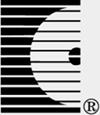LDPC码的信道感知梯度下降位翻转算法
IF 3.7
3区 计算机科学
Q2 TELECOMMUNICATIONS
引用次数: 0
摘要
梯度下降动量翻转比特算法(GDBF-w/M)和概率GDBF-w/M算法(PGDBF-w/M)显著提高了翻转比特算法的解码性能。在本文中,我们提出了一种信道感知的GDBF-w/M算法,该算法基于加性高斯白噪声(AWGN)信道的接收值进行确定性操作。数值结果表明,该算法不仅减轻了GDBF-w/M算法的错层现象,而且在不需要随机数生成器的情况下具有比PGDBF-w/M算法更好的译码性能。此外,该算法的复杂度略高于GDBF-w/M算法。本文章由计算机程序翻译,如有差异,请以英文原文为准。
Channel-Aware Gradient Descent Bit-Flipping Algorithm for LDPC Codes
The gradient descent bit-flipping with momentum (GDBF-w/M) and probabilistic GDBF-w/M (PGDBF-w/M) algorithms significantly improve the decoding performance of the bit-flipping (BF) algorithm. In this letter, we propose a channel-aware GDBF-w/M algorithm which operates deterministically based on the received values from the additive white Gaussian noise (AWGN) channel. Numerical results show that the proposed algorithm does not only mitigate the error-floor phenomenon of the GDBF-w/M algorithm, but it also has better decoding performance than the PGDBF-w/M algorithm without the need for a random number generator. Furthermore, the complexity of the proposed algorithm is slightly higher than that of the GDBF-w/M algorithm.
求助全文
通过发布文献求助,成功后即可免费获取论文全文。
去求助
来源期刊

IEEE Communications Letters
工程技术-电信学
CiteScore
8.10
自引率
7.30%
发文量
590
审稿时长
2.8 months
期刊介绍:
The IEEE Communications Letters publishes short papers in a rapid publication cycle on advances in the state-of-the-art of communication over different media and channels including wire, underground, waveguide, optical fiber, and storage channels. Both theoretical contributions (including new techniques, concepts, and analyses) and practical contributions (including system experiments and prototypes, and new applications) are encouraged. This journal focuses on the physical layer and the link layer of communication systems.
 求助内容:
求助内容: 应助结果提醒方式:
应助结果提醒方式:


